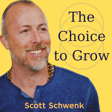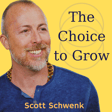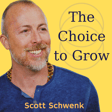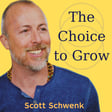
The Biology of Becoming: How to Age in Reverse with Dr. Darshan Shah
In this dynamic episode, Scott Schwenk welcomes Dr. Darshan Shah, founder of Next Health, for a far-reaching conversation on the future of wellness, from bio-optimization and longevity science to spiritual alignment. Dr. Shah shares what it means to reclaim authorship over your own health using biomarkers, tech, and self-awareness—revealing how data can catalyze not just healing, but awakening. From hormone recalibration to AI-driven diagnostics, from ancient wisdom to futuristic medicine—this episode offers both actionable insight and expansive inspiration.
Dr. Darshan Shah, MD - Longevity Medicine Specialist, Surgeon, Visionary
Darshan Shah, MD, is a health and wellness specialist, board-certified surgeon, published author, and founder of Next Health, the world's first and largest Health Optimization and Longevity clinic. Dr. Shah is a board certified surgeon who has performed over 20,000 surgical procedures, including trauma and complex reconstructive procedures. As a Longevity Medicine specialist, he has advised thousands of patients on how to optimize their well-being and extend their healthspan and lifespan. Dr. Shah began his career at an accelerated MD program and earned his medical degree at the age of 21, becoming one of the youngest doctors in the United States. He continued his training at the Mayo Clinic, one of the most prestigious medical institutes in the country. After earning his board certification, he opened medical/surgical centers throughout California, started four other companies in the Health and Wellness space, and has published a book, authored numerous papers and patented medical devices. Dr. Shah’s belief in continual education and self-improvement has earned him alumni status at Harvard Business School, Singularity University, and other prestigious institutions. His passion is educating people on the topics of adding healthspan to your lifespan, having done over 100+ speaking engagements and hosting the critically
acclaimed podcast Extend.
Master Coach, Spiritual Teacher, Culture Architect
Scott’s teachings, courses and private mentoring guide leaders, seekers and creatives to explore their deepest selves in service of thriving on all levels of being, both individually and relationally.
Host and creator of the podcast The Choice To Grow, Scott is known for his hugely popular courses and workshops with OneCommune.com, Younity.com, Wanderlust Festivals, and Unplug Meditation, Scott has been catalyzing the inner evolution of others for decades: helping them to grow, transform obstacles into opportunities, and find Love within.
Apprenticeships in leadership development, meditation and philosophy training, shadow work/shadow resolution and spiritual awakening are all part of Scott’s development into the thought-leader that he is today. He continues to refine his offerings studying and practicing with key innovators at the leading edges of human development.
Scott’s teachings support the entire person to not only progressively recognize, stabilize and embody our inextricable oneness with the source of creation (Waking Up), but also to resolve the wounds of the past (Cleaning Up), continually expand our capacities for wider and more inclusive perspectives on any moment (Growing Up) and creatively and joyfully participate and collaborate with all of life as a loving thriving human being (Showing Up).
You can receive a free guided meditation and explore Scott’s courses, workshops, retreats, training and master coaching at https://scottschwenk.com and can find him on Instagram @thescottschwenk.



